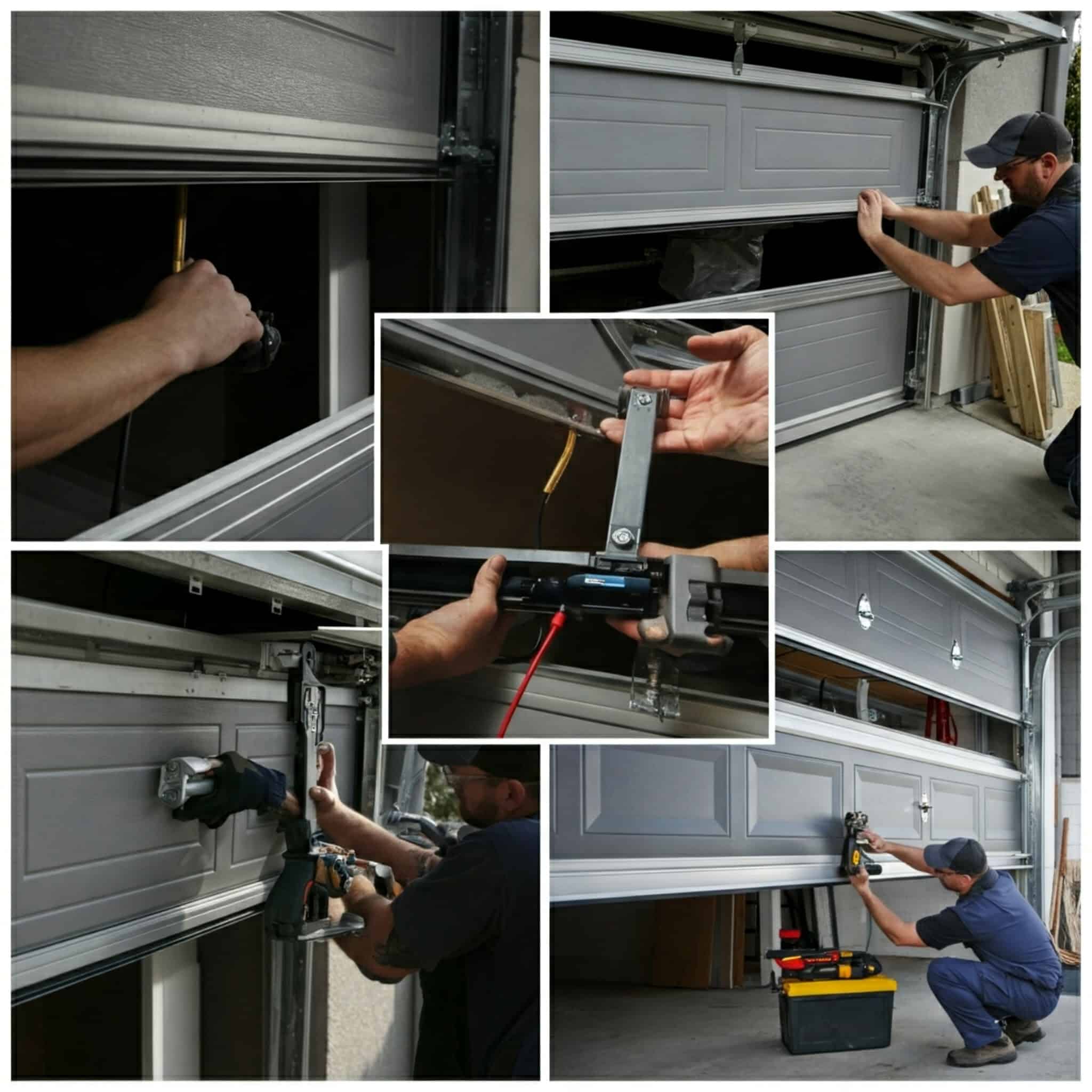Fixing Common Garage Doorway Issues

An garage entrance functions as not only an entry point to your property; it serves a vital role in the safety and operation of your premises. Unfortunately, similar to any moving system, garage doors may face various difficulties that may require attention. From unexpected noises to non-opening doors, recognizing the indicators of problems can prevent you time, money, and aggravation.
In this article, we will examine common garage door problems and suggest practical fixes for diagnosing and fixes. Whether you are planning DIY solutions or considering when it’s time to hire a specialist, comprehending your garage door's behavior is essential to ensuring it in safe functioning order. We will explore everything from the most common concerns to recommendations for maintenance, making sure that your garage door stays a reliable element of your home for many years to come.
Recognizing Typical Garage Entrance Malfunctions
A well functioning garage door is vital for both ease and protection. Still, various complications can arise that suggest it may need fixing. One of the most evident signs is when the garage door doesn’t open or close properly. You might notice jerking movements or a full inability to function. These signs can arise from mechanical problems such as a malfunctioning opener, damaged rollers, or a snapped spring.
Another typical issue shows up as strange sounds during use. If you detect creaking, rubbing, or banging sounds, this could indicate a lack of oil, incorrectly positioned components, or worn-out parts. Ignoring these signals can lead to further problems, making swift care to these sounds critical. Additionally, a noisy garage door can be an irritation and interfere with the tranquility in your residence.

Visual indicators can also help spot garage door malfunctions. Look for observable issues such as dents, fissures, or oxidation on the door panels. Damaged cables or springs may be noticeable, and any displacement in the door’s tracks should be resolved right away. Consistent inspections can help identify these problems early, preventing more extensive repairs later on.
DIY Fixes and When to Contact a Pro
Numerous homeowners are often inclined to handle garage door repairs on their own, especially for minor problems like noisy hinges or out-of-place sensors. Basic tasks such as lubricating the moving parts or securing loose screws can easily improve the garage door's functionality and lengthen its durability. Detailed guides and tutorials are readily available online, providing detailed guidance on how to repair common problems. However, it's important to evaluate your abilities and the nature of the issue before diving in.
While DIY repairs can be satisfying, certain situations require professional intervention. When you encounter problems such as broken springs, damaged panels, or major electrical issues, it is wise to seek help from a skilled technician. Garage door springs, for example, are under immense tension and can lead to injury if mishandled incorrectly. Additionally, when you notice your garage door is no longer working to its remote, or when it's making unusual sounds, these could indicate underlying issues that require expertise to properly diagnose and resolve.
Ultimately, knowing when to call a pro can save you time, cash, and potential hazards. When a repair seems out of your capabilities or if you lack the proper tools, it's best to hire a licensed garage door repair service. Regular maintenance checks by experts can also help prevent costly fixes in the future and ensure that your garage door operates efficiently and safely.
Maintenance Advice for a Reliable Garage Door
Routine maintenance is vital for ensuring your garage door remains in optimal shape for years to come. Start by examining the door's parts, including coils, cables, and rails, for instances of deterioration. Look for frayed cables, rusted springs, or any fault in the tracks. Cleaning the tracks and rollers can help avoid dirt buildup that could impact performance. Additionally, ensure that all fasteners is secured to avoid unnecessary motion that can lead to further damage.
Greasing plays a key role in the maintenance of your garage door. Applying a silicone-based lubricant to the moving parts, such as joints, springs, and rollers, helps reduce resistance and noise while extending the life of these components. Make it a practice to lubricate your garage door at least twice a year. Remember to avoid using grease, as it can attract dirt and cause further problems over time.
Finally, implement a periodic inspection routine that includes evaluating your garage door's balance and safety mechanisms. Checking https://postheaven.net/agendacollar51/diy-garage-doorway-fix-save-money-and-time -reverse function is crucial to avoid accidents. If you detect any issues during these checks, address them promptly to avoid more significant problems down the track. By implementing these maintenance tips, you can make sure your garage door operates efficiently for an extended period.
